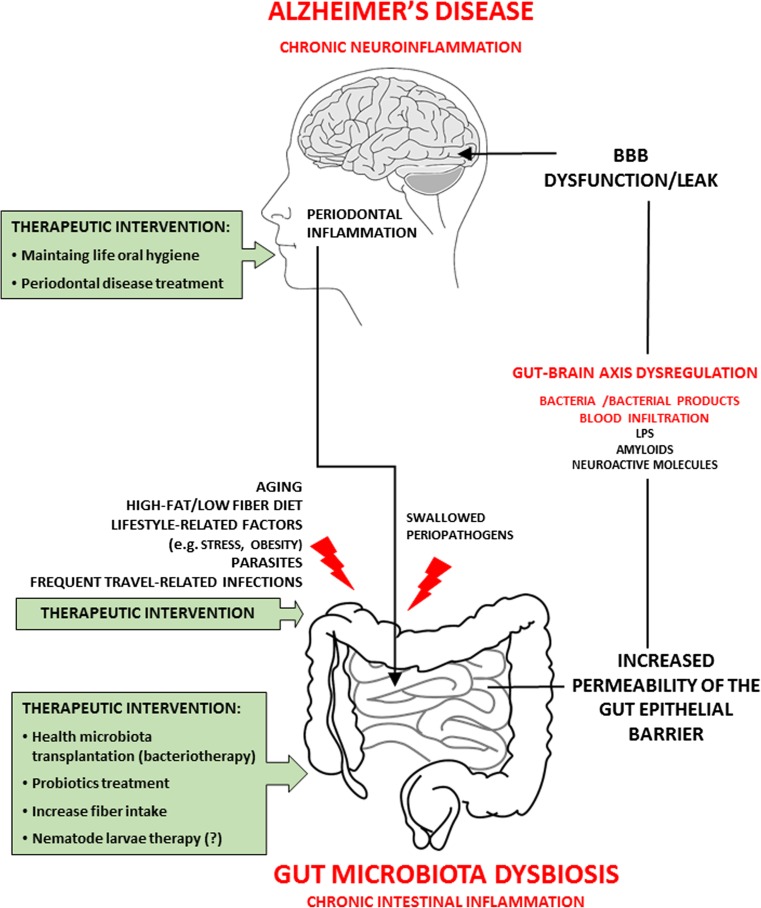Fig. 2.
Gut microbiota dysbiosis and Alzheimer’s disease. Mechanism and potential therapeutic interventions. The gut-brain-axis—a pathway which gut microbiota can modulate host brain function and behavior. Aging, diverse lifestyle-related risk factors, as well as different infections can induce alterations of gut microbiota [dysbiosis] increasing risks of neurodegeneration disorders such as Alzheimer’s disease. Pathogenic bacteria and their products [LPS, amyloids, nueroactive molecules] may induce increased permeability of intestine epithelial barrier and blood-brain barrier dysfunction/leak that may induce/support chronic inflmmatory reactions in the brain. From the times of Hippocrates, it is believed that there is an association between mental health and intestinal flora imballance. Possibly, modulation of gut microbiota as well as therapeutic intervention against gut microbiota dysbiosis will become a new approach to treatment for AD

